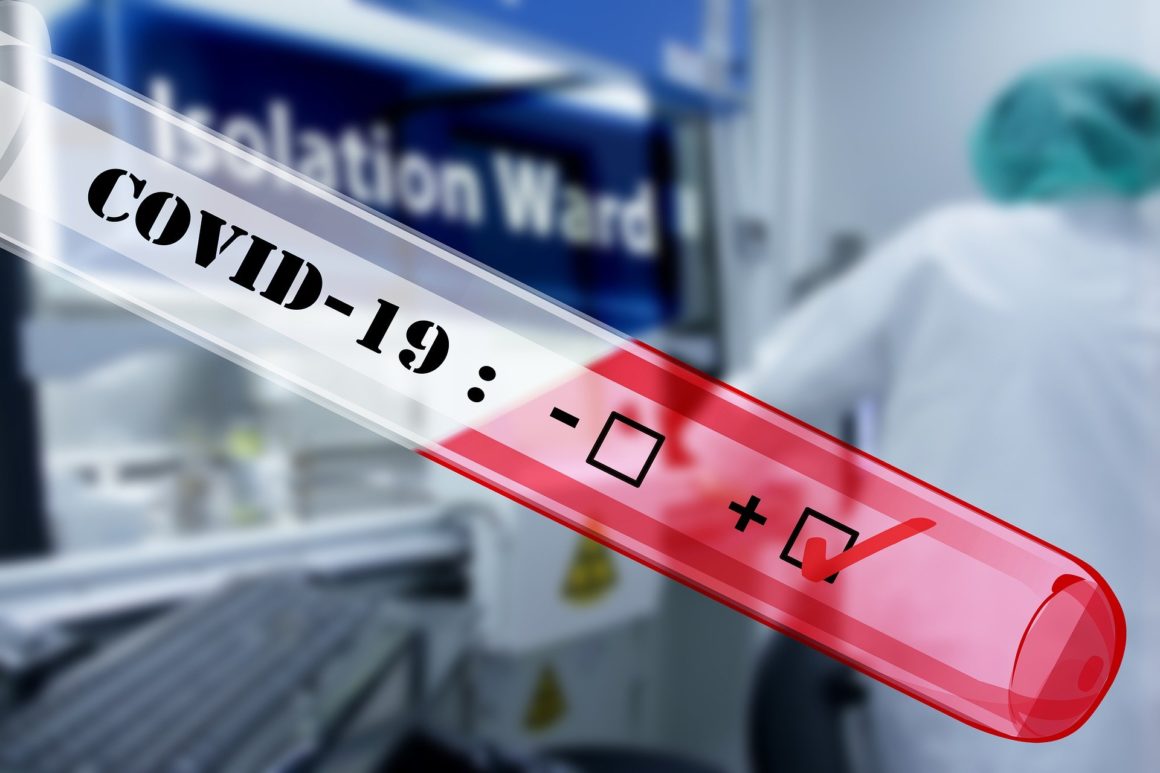Posted at 9:40 a.m. Updated at 4:49 p.m.
This article will be updated throughout the day as more information becomes available.
STATE UPDATES
Gov. Tim Walz issued an executive order that asks all Minnesotans to stay home, starting this Friday, March 27 just before midnight, until 5 p.m. Friday, April 10.
The closure of bars, restaurants and other public accommodations are in effect until May 1, and schools will provide distance learning until May 4.
Minnesotans will still be able to take part in essential activities, such as shopping for supplies, exercising, seeking medical treatment and relocating to safety.
Critical industries exempted from this order include healthcare, law enforcement and first responders, food and agriculture, utilities, childcare and news media.
Gov. Walz emphasized that there are 235 intensive care unit beds available in the state. The stay at home order will buy time until the infection peak, projected to be in 14 weeks, and also buy time for hospital capacity, projected under this scenario to be 11 weeks.
The Governor’s two-week order to stay home is forecasted to significantly slow the spread of COVID-19 and allow the state time to make key preparations for the pandemic. These preparations include building hospital capacity, increasing access to life-saving equipment like ventilators, increasing testing, planning for how to care for vulnerable populations, and assessing public health data to determine which community mitigation strategies are most effective.
The Minnesota Department of Health confirmed 25 new cases today, bringing the total to 287 positive COVID-19 tests in the state.
MDH says over 6,000 tests have been performed at their laboratories, and another 5,000 have been confirmed at commercial labs.
To date, 35 have been hospitalized for complications of COVID-19, and 26 remain hospitalized. MDH says 122 patients have recovered and no longer need to isolate themselves.
The state attorney general’s office is cracking down on price gouging. According to a release, Attorney General Keith Ellison’s office has received over 300 complaints of price gouging across the state.
“I will do everything in my power to help ensure Minnesotans can afford their lives and are protected from pandemic profiteering by people who are trying to line their pockets during this crisis at Minnesotans’ expense,” Attorney General Ellison said.
“We need Minnesotans’ help with this mission, too. I strongly urge anyone who sees any price-gouging on essential goods in their community to report it to my office immediately. We’ll get right on it.”
Yesterday, Ellison sent a warning letter to Menard’s. The letter details customer complaints of Minnesota stores doubling the price on cleaning products and face masks.
Price gouging can be reported on the Attorney General’s online complaint form. Citizens are encouraged to scan and submit receipts along with the form. The AG’s office can also be contacted by phone at (800) 657-3787.
The Attorney General is also prepared to stop evictions, per executive order. Tenants who believe their landlords are violating this order can file a complaint with this online form.
“I hope not to have to enforce this order, or to enforce it only sparingly,” Attorney General Ellison said.
“I hope all landlords rise to this moment and do right by people. But my office will use our full powers to enforce it and protect Minnesotans if any tenants are wrongly evicted during the emergency.”
local updates
Sanford Health confirmed this morning of the first case of COVID-19 in Beltrami County. The patient was exposed while traveling internationally, and followed recommended precautions. Read more here.
The Red Lake Nation has responded to the first confirmed case in Beltrami County by issuing a shelter-in-place order for the reservation for the next 15 days.
The Bemidji School District will resume instruction, but it will be from home for the foreseeable future. Superintendent of Bemidji Area Schools Tim Lutz said in an email that the temporary closure by Gov. Walz was used by the district to plan for distance learning. Distance learning for Bemidji area students starts Monday.
Gov. Walz indicated in the media briefing yesterday that the school closures, as well as the dine-in options for restaurants and bars, would continue.
Beltrami County facilities are closed until further notice. The Beltrami County Board of Commissioners met in an emergency meeting Tuesday, March 23, and in order to protect staff and citizens, closed their buildings.
County services will still continue online, by phone when possible or by appointment on a limited basis.
The following offices and services are available by phone:
- 218-333-4148 – License Center
- 218-333-4138 – Real Estate and Tax Services
- 218-333-4158 – Environmental Services
- 218-333-8173 – Highway Department
- 218-333-4210 – Natural Resource Management
- 218-333-8457 – GIS/Mapping
- 218-333-8300 – Economic Assistance
- 218-333-4223 – Social Services
- 218-333-8140 – Public Health
- 218-333-4178 – Veteran Services
- 218-333-4187 – Law Enforcement Records
- 218-333-9111 – Law Enforcement Non-Emergency
- 218-333-4120 – Court Administration
Citizens are encouraged to call before arriving to any Beltrami County facility.
EXECUTIVE ORDERS
March 25: To slow the spread of COVID-19 across the state, Governor Tim Walz today signed Executive Order 20-20 directing Minnesotans to stay at home and limit movements outside of their home beyond essential needs. This order takes effect at 11:59pm on Friday, March 27 and ends at 5:00pm on Friday, April 10.
The Governor also today issued executive orders extending the closure of bars, restaurants, and other public accommodations set forth in Executive Orders 20-04 and 20-08 until May 1, 2020 at 5:00 pm and authorizing the Commissioner of Education to implement a Distance Learning Period for Minnesota’s students beginning on March 30 through May 4, 2020.
March 23: Governor Walz signed Executive Order 20-17 clarifying application of Executive Order 20-09 to veterinary surgeries and procedures
Executive Order 20-16 directs non-hospital entities to inventory and preserve vital medical equipment during the COVID-19 peacetime emergency
Executive Order 20-15 provides immediate relief to small businesses during the COVID-19 peacetime emergency
Executive Order 20-14 suspends evictions and writs of recovery during the COVID-19 peacetime emergency
March 21: Governor Walz signed Executive Order 20-13 authorizing National Guard assistance to COVID-19 Response, beginning with transportation and logistics in stockpiling personal protective equipment for health care workers.
March 20: Governor Walz signed Executive Order 20-12 preserving access to human services programs.
Executive Order 20-11 secures Federal authority to continue human services programs.
Executive Order 20-10 combats price gouging.
March 19: GovernorWalz signed Executive Order 20-09 to delay elective surgeries and procedures in order to conserve health care resources and reduce contact between patients and providers.
March 18: Governor Walz took action to support businesses affected by COVID-19 by announcing a 30-day Sales and Use Tax grace period for businesses identified in Executive Order 20-04.
Executive Order 20-08 clarifies the types of businesses and places of public accommodation subject to closure per Executive Order 20-04. The executive order clarifies that the closure order applies to salons, barbershops, and other similar establishments.
March 17: Governor Walz signed Executive Order 20-07 providing paid leave for state employees who are not able to work for reasons related to COVID-19 and suspended the waiting period for insurance coverage for new employees.
He also signed Executive Order 20-06 to exempt vehicles and drivers providing direct assistance for emergency relief efforts in response to COVID-19 from certain regulations including provisions on weight and hours of service.
Governor Walz signed Ch. 70 S.F. 4334 into law, allocating $200 million toward an emergency and long-term grant program to respond to the needs of health care and long-term care facilities during the COVID-19 pandemic.
March 16: Governor Walz signed Executive Order 20-05 to strengthen Minnesota’s Unemployment Insurance Trust Fund and ensure that workers who are not able to work as a result of COVID-19 have benefits available. Specifically, this Executive Order waives the employer surcharge and allows the Minnesota Department of Employment and Economic Development to pay unemployment benefits immediately, providing fast relief to employees who need it.
Executive Order 20-04 ordered the temporary closure of Minnesota restaurants and bars to dine-in customers. He also ordered the temporary closure of other places of public accommodation and amusement, including theaters, museums, fitness centers, and community clubs.
Executive Order 20-03 is aimed to prevent the spread of COVID-19 in Minnesota’s Veterans Homes. This executive order allows Veterans Homes to protect residents and staff by temporarily restricting visitors, reducing the risk of COVID-19 spread among residents.
March 15: Governor Walz signed Executive Order 20-02 authorizing the temporary closure of Minnesota K-12 public schools to students in order for school administrators and teachers to make long-term plans for the continuity of education and essential services during the COVID-19 pandemic.
March 13: Governor Walz signed Executive Order 20-01 declaring a peacetime emergency in Minnesota and unveiled legislative proposals to prepare for the COVID-19 pandemic.




